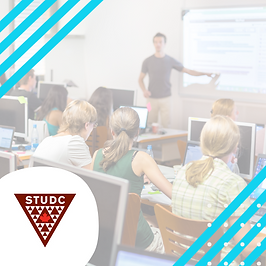
Canadian
Mathematical
Society
Mini Courses
Mining Complex Networks
Friday, June 2 | 9am - 12pm

François Théberge
Tutte Institute for Mathematics and Computing (TIMC), and
Adjunct Prof., Department of Mathematics and Statistics, uOttawa
Complex networks appear in a variety of contexts such as social networks, the World Wide Web, collaboration networks, power girds, etc. Such data is often represented using graphs. In this short course, we provide an overview of commonly used tools and techniques for mining such datasets; we also explore some current research areas such as mining higher order relations which are often represented as hyper-graphs. A subset of the following topics will be covered:
-
Introduction to complex networks and their representation
-
Random graphs models;
-
Centrality and betweenness;
-
Triads and transitivity;
-
Graph clustering;
-
Graph embeddings; and
-
Mining hyper-graphs
The material is based on the recently published book:
Bogumił Kamiński, Paweł Prałat, and François Théberge, “Mining Complex Networks”, CRC Press, 2022.
https://www.torontomu.ca/mining-complex-networks/
The mini-course is designed for a general math audience, including students and practitioners. The topic is applied, and an introduction to the terminology and concepts from graph theory and probability will be provided, as required. Links to Jupyter Notebooks written in Python will be provided to help illustrate some of the concepts discussed, but knowledge of Python programming is not required for the course.
The mathematics software package Maple has been used by educators, scientists and researchers for over 30 years. Maplesoft’s most recent offering is its free online tool, Maple Learn, that makes it easy to explore math concepts. Either can be used on its own to build interactive applications that you can publish online, or the two can be used in combination to take advantage of both the full power of the Maple engine and the easy-to-use Maple Learn interface. Examples can be found in the Maple Learn Gallery: https://learn.maplesoft.com/.
In this course, we will work through several examples showing how Maple Learn can be used to create educational content featuring visualizations, exploration of parameters, and feedback on user-provided solutions to practice problems. We will also use Maple to generate Maple Learn documents that can incorporate results from its advanced math packages, such as GraphTheory or NumberTheory. Additionally, we will create interactive quizzes and practice sheets that can be used online by students. Participants will have the opportunity to customize the content created in this course to suit their own teaching or presentation needs.
Please note: this course is provided free of charge. All registrants will also receive limited-term licenses for both Maple and the Premium version of Maple Learn.
Building Interactive Online Applications with Maple and Maple Learn

Monday, June 5 | 12pm - 1:30pm
Light lunch/snacks will be provided
Paulina Chin (Maplesoft) and Karishma Punwani (Maplesoft)
CMS Student Committee
Writing Workshop
.png)
Friday, June 2 | 9am - 12pm
Alexander Clow and William Verreault, StudC
The Student Committee of the CMS is organizing a Writing Workshop that will be held at the upcoming CMS Summer Meeting at the University of Ottawa. Whether you are trying to better understand math papers or you simply want to improve the quality of your mathematical reading and writing, everyone is welcome to attend!
This workshop will be split into three parts. There will be presentations by Melissa Huggan and Anthony Bonato, the first focused on how to read mathematical writing, specifically how to break mathematical work into its component pieces with the goal of better understanding the material and the author’s choices in presentation, the second on how to write mathematics, particularly how to organize your ideas and results in an accessible way to readers while remaining rigorous. The remainder of the workshop will be spent applying what was presented in the talks to real examples.
This event is free of charge for those attending the meeting. It will take place on Friday, June 2nd from 9:00 to 12:00. Please fill in the following Google Form if you are interested in participating (this is not mandatory to attend the workshop but facilitates the process): StudC Writing Workshop Form.